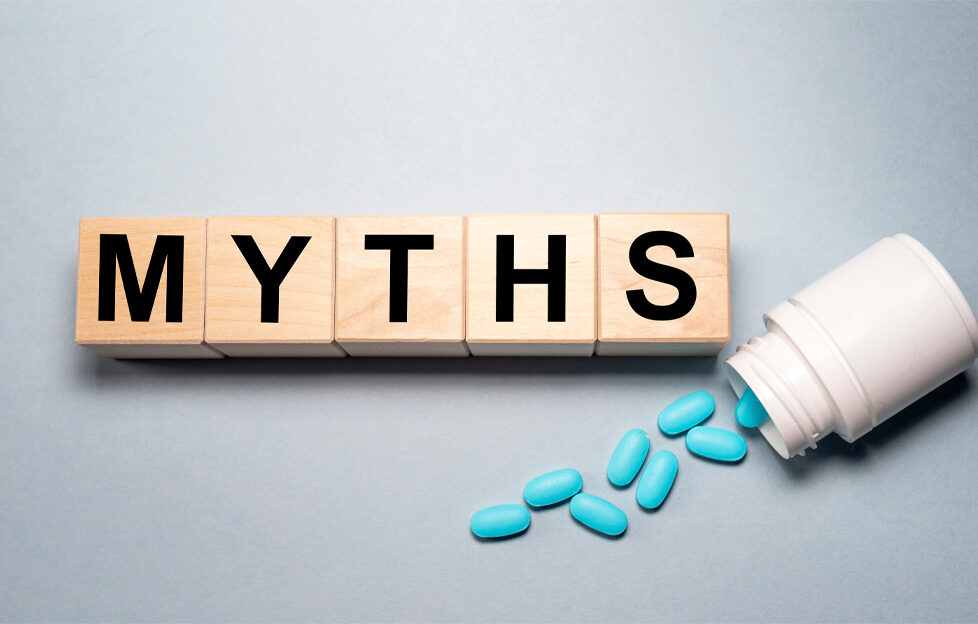
With so much information out there it’s hard to tell what’s true or not. You’re probably still holding on to lots of old wives’ tales you heard as a child! Health experts from Free Soul are debunking common health myths.
1. Consuming more vitamins is always good for you
Upping your vitamin intake is a great way to get more valuable nutrients into your diet. They boost immunity, gut health and energy. Vitamins have a whole host of benefits, and can improve the health of your hair, skin and nails.
However, there is such a thing as too many vitamins. When a person greatly exceeds their recommended daily intake of vitamins over a sustained period of time, they could suffer a vitamin overdose.
Overdosing on vitamin D can lead to abnormally high levels of calcium in your blood, in turn causing high blood pressure, kidney stones and other health issues.
2. Fresh veg contains more nutrients than frozen
This makes too much sense to be a myth, right? However, a 2017 study showed that there was no significant difference in nutrient content between fresh vegetables and frozen. The study even found that, in cases when there was a difference in nutrient content, it was the frozen vegetables that maintained a higher concentration of nutrients.
Whilst you might get more flavour from fresh veg, the knowledge that you’re not missing out on any nutrition by eating frozen veg opens a huge number of doors in terms of healthy eating. You can enjoy more variety year-round, enjoying veg that isn’t in-season, and work them into a vast number of dishes. Plus, given the current cost-of-living crisis, eating healthily just became cheaper – frozen veg is much cheaper than their fresh counterparts!
3. All fatty foods lead to weight gain
Full-fat foods have become somewhat demonised in recent years, and are regularly replaced by low-fat alternatives in ‘healthy’ recipes or meals. However, whilst excessive consumption of overly fatty foods undoubtedly has the ability to facilitate weight gain, fat is an important aspect of a balanced diet.
For example, fat helps aid a number of positive body functions, such as the absorption of vitamins, minerals and more. Fat stored in body tissues helps regulate your body temperature and metabolism, whilst providing insulation for your internal organs.
It’s worth noting that there are good and bad fats – unsaturated and saturated, respectively. Most fatty foods contain elements of both fats, so it can be difficult to eliminate the unhealthy saturated fat from your diet. However, by replacing saturated fats with unsaturated where possible, you could see positive effects on your health.
4. Men and women should follow the same diet
Much like vitamin intake, there is no singular perfect diet that is guaranteed to yield best results for everyone who follows it. In fact, individual responses to the same foods are unique – even amongst identical twins! There are a number of key differences in the nutrients that men and women require, too, meaning that you could enjoy significant health benefits by adopting a sex-specific diet.
On the surface, the average man requires a higher daily calorific intake than a woman, but their actual recommended nutrients and vitamins are likely to be different. Women often have higher vitamin and mineral needs than men; women are more likely to suffer from anaemia than men, meaning a specific focus on calcium, iron and folic acid could offer health benefits.
Age ranges are also important to consider here – due to hormonal changes linked to menstruation, women are more susceptible to weakened bones and osteoporosis than men. With this in mind, the average post-menopausal woman requires more calcium in their diet than men of the same age.
5. Vegans don’t get enough nutrients in their diet
Whilst it’s true that animal products do contain plenty of valuable proteins for living a healthy lifestyle, there’s no reason that you can’t enjoy a cruelty-free lifestyle and still get all the nutrients you need. With an ever-growing number of people in the UK adopting a vegan lifestyle, there are plenty of meat alternatives that you can turn to.
Identifying common sources of plant-based protein will help set you off on the right track – staples like oats, beans and quinoa contain plenty of protein, as do greens such as spinach and broccoli. Tofu and lentils are other great ingredients to incorporate into a vegan diet to ensure you’re getting enough protein. Don’t feel afraid if you’re unfamiliar with some of these ingredients – going vegan can also help you take more risks in the kitchen and discover exciting new flavour combinations.
Get more health advice from the “Friend”.




